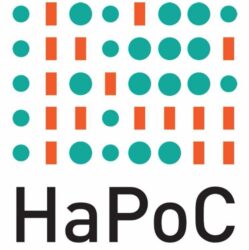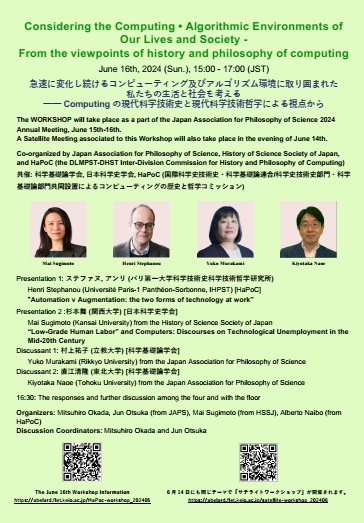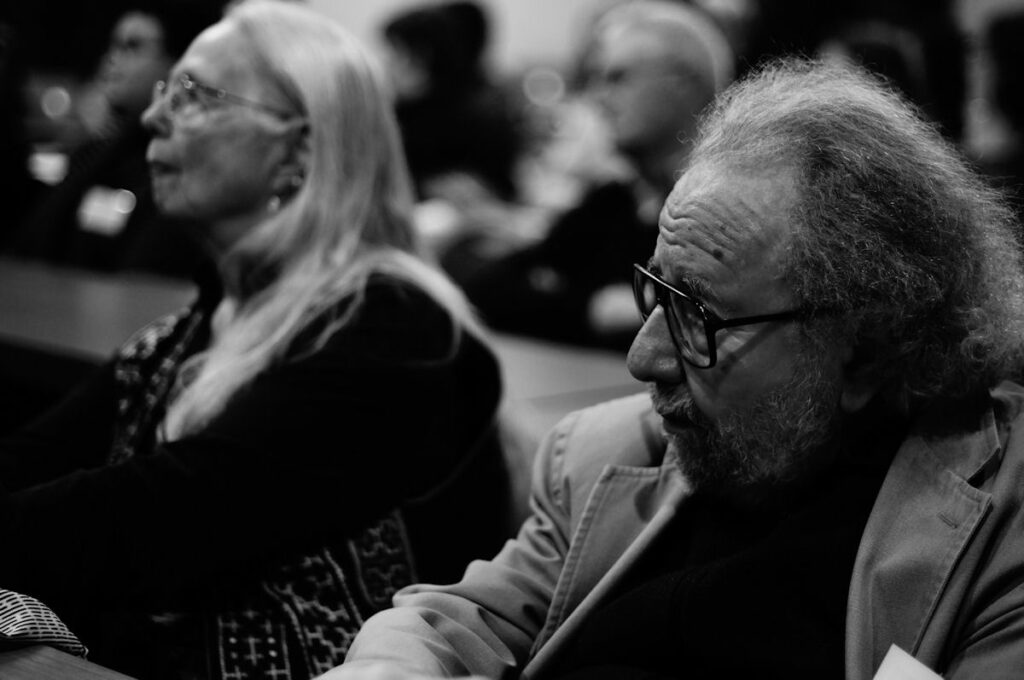*HaPoP 2020*
Fifth symposium on the History and Philosophy of programming
27 May 2020, Paris, France
Co-located with NewCrafts 2020, 28-29 May 2020
https://www.shift-society.org/hapop5/
In a society where computers have become ubiquitous, it is necessary to develop a deeper understanding of the nature of computer programs, not just from the technical viewpoint, but from a broader historical and philosophical perspective. A historical awareness of the evolution of programming not only helps to clarify the complex structure of computing, but it also provides an insight in what programming was, is and could be in the future. Philosophy, on the other hand, helps to tackle fundamental questions about the nature of programs, programming languages and programming as a discipline.
HaPoP 2020 is the fifth edition of the Symposium on the History and Philosophy of Programming, organised by HaPoC, Commission on the History and Philosophy of Computing. As in the previous editions, we are convinced that an interdisciplinary approach is necessary for understanding programming with its multifaceted nature. As such, we welcome participation by researchers and practitioners coming from a diversity of backgrounds, including historians, philosophers, computer scientists and professional software developers.
/Programming as an art, a craft or a science/
This edition of the symposium will be colocated with NewCrafts, an international software development conference for professional developers who care about quality code and improving their practices. In recent years, NewCrafts featured many talks on software craftsmanship, programming paradigms, architecture, but also ethics and philosophy and history of computing.
To initiate an inspiring conversation between the NewCrafts and HaPoP communities, we are particularly looking for talk proposals that discuss the question in how far programming can/has been/should be understood as an art, a craft and/or a science and what that implies both for the practice of programming as well as for our understanding of computer programs. We may not be able to answer this question, but we believe it will lead to useful insights about the nature of programs and programming.
/Selected topics of interest for the symposium/
Possible and in no way exclusive questions of relevance to this symposium are:
Can/has been/should be programming understood as an art, a craft and/or a science?
Are we getting better at writing programs that solve the given problem?
Is programming a specialist discipline, or will everyone in the future be a programmer?
What are the different scientific paradigms and research programmes developed through the history of computer programming?
Is it possible to eliminate errors from computer programs?
What is a program? How did the notion of a program change throughout the history?
How are programs and abstractions born, used and understood?
What was and is the relationship between hardware and software developments?
How did theoretical computer science (lambda-calculus, logics, category theory) influence the development of programming languages and vice versa?
What are the novel and most interesting approaches to the design of programs?
What is a correct program? Historical and philosophical reflections on issues in formal specification, type checking and model checking.
What is the nature of the relationship between algorithms and programs?
What legal and socio-economical issues are involved in the creation, patenting and free-distribution of programs?
How do we understand the multi-faceted nature of programs combining syntax, semantics and physical implementation?
How is programming to be taught?
/Dates, format and submissions/
For the symposium, we invite submission of two-page extended abstracts (including footnotes, but excluding references). Accepted papers will be given a 30 minute presentation slot including discussion. As with the previous editions, we also intend to submit a proposal for a special issue of a suitable journal for publication of full papers based on the symposium presentations.
Important dates
Submission deadline: *1 March 2020*
Author notification: *1 April 2020*
HaPoP symposium: *27 May 2020*
/Important links/
Submission web site: https://easychair.org/account/signin?l=PRJGt7pZiwCv3QpOfMAmKd#
Financial support: Coming soon
Registraton site: Coming soon
/Program committee/
Liesbeth De Mol (co-chair, CNRS – UMR 8163 STL Université de Lille)
Tomas Petricek (co-chair – University of Kent)
Arnaud Bailly (Aleryo)
Martin Carlé (Ionean University)
Andrea Magnorsky (Independent)
Ursula Martin (Oxford University)
Baptiste Mélès (CNRS, UMR 7117 Archives Henri-Poincaré
Pierre Mounier-Kuhn (CNRS & Université de Paris-Sorbonne)
Romeu Moura (Independent)
Mark Priestley (Independent)
Giuseppe Primiero (University of Milan)
/Registration/
Program committee of the symposium, as well as registration information will be announced soon. Please check this page regularly for updates. We will be also sharing updates via the HaPoC Comission web page (register to get updates via email) and on Twitter at @HaPoComputing.
HaPoP-5 co-chairs are Liesbeth De Mol and Tomas Petricek. If you have any questions regarding suitability of a topic or format of the extended abstract, please contact Liesbeth at liesbeth.de-mol@univ-lille.fr or Tomas at tomas@tomasp.net. For quick questions, you can also use @tomaspetricek on Twitter.


